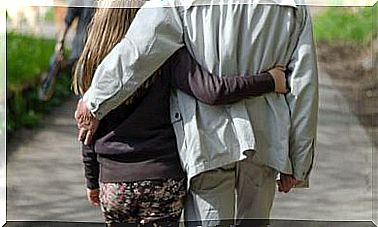Are Crazy People Dangerous? A Deadly Stereotype
Diego Pérez was killed asking for help while suffering from a crisis. Was he a violent madman?

At dawn on March 11, 2014, Diego Pérez, a man diagnosed with schizophrenia, called the Cartagena police station to ask for help “because some neighbors wanted to kill him.”
After getting into a patrol car, he was found dead 15 days later, his body floating in the sea. The autopsy revealed all kinds of “vital traumatic injuries.”
I suppose that, in the face of similar news (because in the United States it is the bread and butter that, especially if you are racialized and more specifically black, the police kill you when you or your family call for help during a mental health crisis), Some may wonder what the police could do in the face of a “dangerous madman”. If anything they had a choice but to pull the trigger.
To whoever asks this question first, I will say: is it really possible to defend that the “security forces” torture a person with a psychiatric diagnosis to death? Because “vital trauma injuries” were not caused by a single shot.
But I will also tell you that I once investigated the behaviors of police officers in San Antonio, Texas; It was clear to me what I had always suspected. That it is possible to interact, even to help a person with a psychiatric diagnosis without resorting to violence and even less to murder (not to mention gratuitous torture).
And is that in San Antonio, Texas, police officers are trained to recognize the so-called “symptoms of mental disorder” and respond to them peacefully. Thus, in this city violent attacks by the police on citizens have been significantly reduced.
Violent madmen? No, madmen raped
The problem, for me (beyond the repetitive pattern of torture and police ill-treatment in the State, even investigated by the European Court of Human Rights in Strasbourg) is that in the mere collective imagination a psychiatric diagnosis is already associated with the tendency to violence.
If not, why, when Andreas Lubitz crashed the Germanwings plane, did all the headlines refer to his diagnosis of depression? And that Andreas Lubitz was diagnosed with depression, a “mental disorder” that is not linked as much to the outbreaks of violence in the popular mentality as it can happen with a psychotic outbreak.
And the reality is very different. It proves otherwise, in fact. There are already studies that explain how having a psychiatric diagnosis makes you more likely to be a victim of violence than to perpetuate it, and I am not surprised.
If even in the same psychiatric hospitals and psychiatric wings where they are supposed to take care of us and help us, they tie us up, immobilize us, isolate us… what can we expect from an average person totally uninformed in terms of mental health?
For all this, I am convinced that Diego Pérez is neither the first nor the last victim of mistreatment and murder, so it should, in my opinion, be classified as a hate crime against a person with a psychiatric diagnosis or another type of “disability ”.
And not that I say it. There are cases and cases, especially of people with Down Syndrome or autism, which show that the cruelty of people can have no limits when it comes to torturing those people who are not (or are) considered people like them. That we are systematically dehumanized by feeding back this violence that will later victimize us.
For all this, as soon as I found out about the case of Diego Pérez, I wanted to write about it.
I am aware that I am not saying anything new. I am aware that the type of people, police officers or ordinary citizens, who would commit these types of crimes are probably not reading me right now.
But he needed to write it. Because I saw in Diego Pérez a person who suffered the unspeakable in one of the worst situations in which a person can suffer: when he expects to receive help and obtains precisely the opposite.
Because I saw in Diego Pérez my loved ones with outbreaks and hallucinations, myself when I have one of my worst crises (which are not limited to depressive episodes).
Because, after all, I can’t help wondering how many of us Diego Pérez will be one day. And I only ask that we all fight because, one day, being Diego Pérez does not pose a danger to one’s integrity and even one’s life.
For us. For him.









